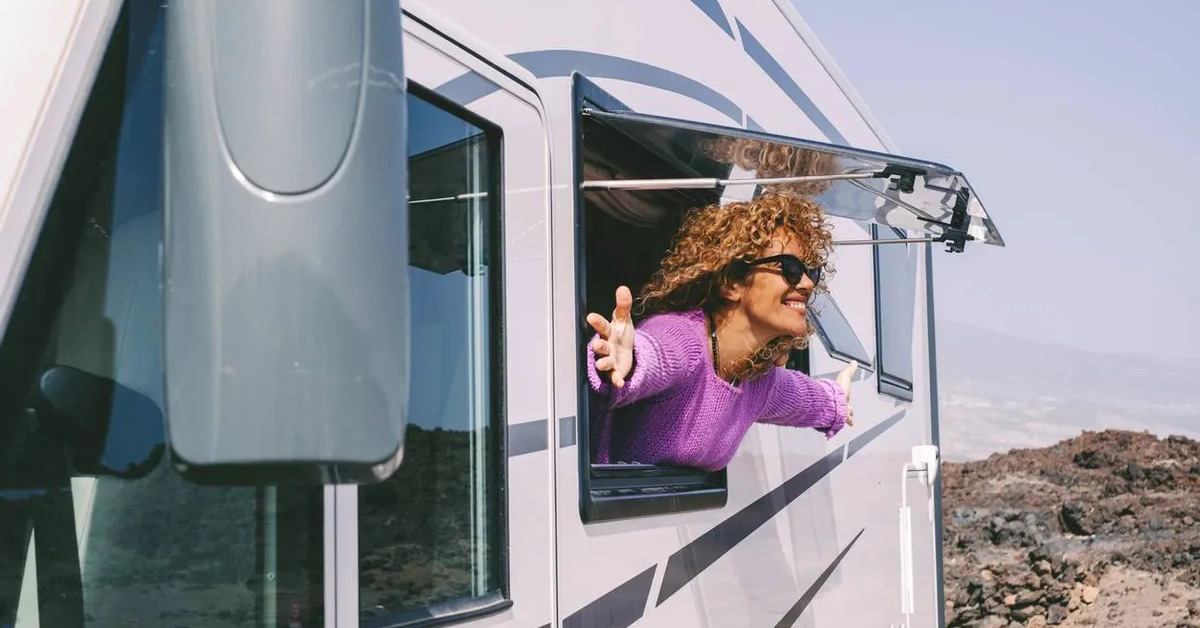Common Questions About RVs
By John Doe
Published on
exploring the countryside, a reliable motorized RV can be your best travel companion! If you’re new to having an RV, or are considering getting your first one, you might have a lot of questions before you’re ready to hit the open road. To get your RV journey started, we’ll answer a few of the common questions you might have about RVs. From what RV actually stands for to parking solutions for these big vehicles, we’ll get you up to speed on the basics! Here at 10 Federal Storage, we can also help you find a home for your vehicle between road trips - if you’re all ready to rent a place for your RV, just take a look at our storage locations and find a parking spot!
What does RV stand for, anyway?
Actually a fairly broad term, RV stands for “Recreational Vehicle.” This means that, technically, camper trailers, motorhomes, pop-up campers, and really any drive or tow-able vehicles with living quarters could be considered RVs. However, RV is frequently used to describe drivable/motorized recreational vehicles, and not trailers and campers, which are towed. Motorized RVs are technically called motorhomes, but chances are you’re used to hearing them referred to as RVs, so we’ll follow that trend! In this context, we’ll stick to the term “RV” to just describe drivable vehicles. While we're classifying vehicles, it’s worth reviewing the different types of RVs. There are three major RV classes, and, surprisingly, they’re not in order of size! The main RV classifications are:
- Class A RVs - The largest types of RVs, class A RVs pack in some serious living space with plenty of room for luxury. Running up to about 45 feet in length, these RVs can often sleep a small group of people. Some of these RVs have expandable slides, and can even tow a car!
- Class B RVs - These are actually the smallest types of RVs. Often referred to as camper vans, these smaller RVs usually have one bed and are best suited for accommodating one or two people. Because class B RVs are fairly small and compact, at around the length of a large van, most drivers will find that the learning curve for driving these vehicles is quite a bit smaller than for larger RVs.
- Class C RVs - Class C RVs fall in between Class A and Class B RVs in size. Big enough to accommodate a few people, they are a great choice for families, and often accommodate mid-sized budgets.
Do you need a special license to drive an RV?
Typically, you don’t need a special license to drive an RV. Campervans usually won’t even come close to being large enough to require a special license, while most Class B and Class A RVs will also fall below the cutoffs. 16 passengers and 26,000 pounds are common cutoffs for requiring special licensing - although it never hurts to check with the DMV in your state to be sure you’re all clear to drive your RV with just your regular driver’s license.
How much is an RV to buy?
The price that you can expect to pay for an RV can vary greatly. As you might expect, Class A RVs are usually the most expensive while class B and class C RVs generally fall in a lower price range. The features and amenities included in the vehicle will also have a big impact on the price you’ll end up paying for the RV. Buying used can also save you money on an RV - although, just like with cars, you’ll likely have to spend more on upkeep for an older RV when compared to a new one.
If you’re looking for Class A RVs, you can expect to find some priced at around $100,000 - but they often cost more and can range up to over $1,000,000! You may also be able to find an older Class A model for somewhere around the upper five figures. A new Class C can fall into similar price ranges as the more affordable Class A RVs - expect somewhere in the mid-upper 5 figures or around $100,000 for most Class C’s.
Remember, however, to consider all the included features and luxuries if you find yourself comparing similarly priced models in two different classes - a Class A RV at the lower end of the price range will likely be a fairly basic model. If you’re considering a Class B RV, you’ll probably be looking at least the mid or high five figures, but again, these RVs can be priced significantly higher, depending on the year and the features offered. Although prices range greatly, it’s not unreasonable for a newer RV to be priced in the general ballpark of $100,000.
What about RV gas mileage?
Since fuel costs can make a pretty big dent in your travel budget, you’ll want to consider gas mileage when you’re choosing between different RVs. Again, the gas mileage you can expect will depend largely on the specific model you choose. In general, however, larger RVs will typically get fewer miles to the gallon than smaller ones. A campervan will typically be the most fuel efficient, while Class A RVs might only get 10 or fewer miles per gallon.
Where can I park my RV?
Especially if you’re going with a Class A or Class B RV, parking your vehicle can be a challenge. While you’re on the road, you’ll likely be stopping at parks and camping grounds for parking, but what do you do when you’re back home? If you have room, you can park your RV on your property or in your driveway or garage. You can also try parking your RV on the street, although if your house belongs to an HOA, you’ll want to find out if they impose any fees or RV parking restrictions first. When deciding on the right parking solution, you’ll also want to consider the security of your vehicle in your chosen spot. So, what do you do if you’re worried that your RV won’t be secure, or if you just don’t have room for it at home? Before you give up on your RV traveling dreams, look into parking options at your local 10 Federal self storage facility. Some of our storage facilities offer parking spaces for RVs, boats, and cars - even if you have a Class A RV, you can find the vehicle storage space you need with us!
Get your RV Storage Space Today
Now that you’re all caught up on the basics of RVs, you’re ready to take the first steps to making your road trip dreams a reality! Although you’ll have tons of decisions to make when it comes to selecting the right RV and planning road trips, we can make having a parking spot ready simple! Just find a 10 Federal location near you, and get started by renting or reserving a parking space online.
Bio
Bio Details

